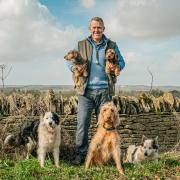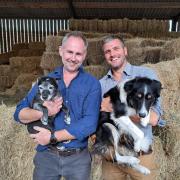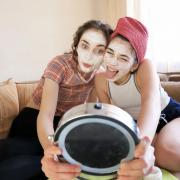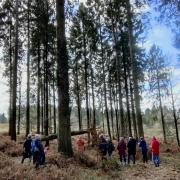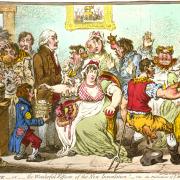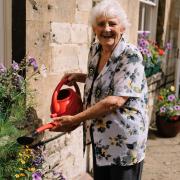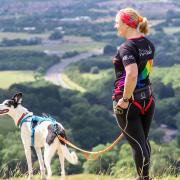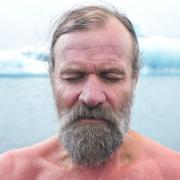If you want to find your authentic self, spend more time in the company of horses
You don’t need to be a ‘horsey-type’ to know they’re deeply empathetic.
Yes, of course they have their own individual hang-ups, temperaments and foibles as do we homo sapiens, but they don’t carry the same baggage, those social norms that stop us being really true to ourselves. You’d never catch a horse asking if its bum looked big or if the stallion in the next field really, really liked them and whether they’re a ‘keeper’. Yes, of course I’m being trite, but the point is horses don’t hang onto stuff unnecessarily; they deal with what’s happening in the moment and move on.
Yep, we’ve an awful lot we can learn from them.
Spend a moment in the presence of a pony or horse, gain its trust, put face to face, breathe in the musky scent while experiencing the soft velvet of its muzzle and, for that moment, nothing else seems to matter. Time stands still.
This is something that equine-facilitated coach Helen Philip knows all too well.

As someone’s who’s competed at national level in dressage and who has also spent over 20 years in the corporate world, she has a distinctive take on the two worlds and how they can work together. On embarking on her current path, her idea was to combine being on the ground with the horses (as opposed to be riding or otherwise trying to control them) in order to help people understand the impact that has on how they are in relationships at work. A remote field in the Oxfordshire countryside is a world away from the office environment, so it may be difficult to see how there can be any correlation.
‘It’s all about breaking down people’s barriers, and getting them to be authentic,’ she says as we meet on a sunny but blustery day at the stables near Faringdon. ‘ You have to take away the mask and see what’s really going on.’
Helen’s training was with The Herd – who are based in the US – and Hertfordshire-based Learning to Listen. The industry isn’t regulated, though, so Helen could have easily set up business without training, but to her it was important that she had that accreditation and trust with the people she was working with.
‘I don’t know of anyone else else doing the corporate side [of equine-facilitated coaching] on a one-to-one basis, so it’s kind of a niche, within a niche, within a niche, within a niche!’ she laughs.
‘With the training I did, to become a coach, you have to start by unpicking all your own shit and tackling those issues. Our coach rightly said, “You can’t bring about change in another person if you haven’t done it yourself,” and so I’m a completely different person to what I was two or three years ago.’

On the corporate side, her two different types of programmes are ‘Improve Sales Performance’ and the ‘Authentic Leadership Programme’, but in addition to that, she also does one-to-one life coaching.
‘With life coaching I’m really careful to say that, although it can be emotional, it’s not therapy per se.’
And it may not be therapy as we know it, but Helen insists on doing a lot of preparation before taking anyone on to make sure that it’s right for them. ‘If someone said they had PTSD, suffered flashbacks or were feeling suicidal,’ she says, wisely, ‘then I would signpost them to a counsellor.’
People go to Helen when they’re a ‘bit stuck in their lives and aren’t sure which direction to take,’ she says. ‘Maybe they’re repeating patterns in relationships, they tend to overthink and are stressed; it’s those kind of things that most of us experience on some level that we can look at.’
She tries to encourage people to attend the sessions individually. ‘When you get people in groups, particularly with guys, there can be a lot of bravado, and they’re not ever really going to start to tell you what they’re afraid of, what their issues are at work, and what they wish they were better at. The one-to-one sessions are really valuable, and so I encourage people to try two or three of these.’
The one-to-ones are usually over a six-month period, with the person going out to see Helen and the horses once a month for a 90-minute session. On the corporate side, it would either be two half-days or a run of 90-minute sessions every month for three months, so it is a commitment.
The larger of Helen’s two horses, Rubens, used to be her dressage partner. She’s had him since he was three years old, and he’s now 20 – and between them they achieved great success on a national level, until injury struck.
‘He had two injuries and had to be retired,’ she says, ‘but he’s absolutely fine, really, and still has all the moves. It’s kind of like having a Ferrari; you get in, turn the key, but you’re only allowed to go in first gear.’

Their relationship has changed immensely since their competing days. As Helen puts it, she was always ‘doing something’ when she was around him before: ‘bringing him in the stable, putting him out, putting a saddle on, riding him... Once that was gone, it was like grief; it was really strange.’
The two have adapted incredibly well to their change in circumstances. Rubens enjoyed and anticipated being given cues from Helen when they were dressage partners – as we all know, routine can be a reassuring presence in our lives – but they've somehow got to know each other on a much deeper level now. Words and actions are superfluous; communication is instinctual and almost supernatural.
‘I had to completely relearn how to be with a horse, on the ground, in a way that another horse would be. Red [the younger of her two horses] has been absolutely amazing with that as he does treat me like another horse, whereas for a while Rubens was still thinking, “Oh, what do you want me to do next?”

Helen has had Red about 18 months now, and says the two horses have ‘an interesting relationship’.
‘Cats, dogs, horses, they’re in the present,’ she says. ‘They’re not thinking about an email that wound them up last Tuesday... they can teach us so much.’
The horses live outside all the time – though they have field shelters they can use if they want to (most of the time, they really don’t) – and that's encouraged for this type of work, as you want the horse to be as natural as possible.
‘Horses aren’t designed to be in a 12'x12' stable; they’re designed to be moving, to be grazing little amounts all the time, and they’re designed to be able to interact with each other. A stable is like solitary confinement to them, but that’s the whole competitive horse world; we have to control what they eat and how much exercise they have. But people like Carl Hester are winning world and Olympic championships with horses that live in a field, so he’s kind of debunked that to a certain extent.’
Because he’s been used to being very active, Rubens does have a tendency to get bored, Helen admits, and starts moving Red around, so the sessions are very good for them. ‘They get very involved,’ she says.
Naturally, Helen doesn’t discuss individual cases because of confidentiality, but she does touch on the experience of one man recently who was finding Covid and the lack of connection with other people difficult. ‘He was standing at one end of the field with Rubens at the other, and Rubens immediately made a bee-line for him, walked all the way across the field, and then stood with his head on the man’s chest. He stayed there for ten minutes. Ten minutes!’
Maybe we should all be a little more horse.

My time with Red and Rubens
My hour or so in the company of Red and Rubens extended – almost imperceptibly – to closer to two-and-a-half hours. I’d like to say it was down to my natural ability to blend with the horses, to be at one with them, to become so ‘horse’ in their presence I was accepted completely as one of the herd... but, no.
My experience – and I’m still trying to unpick it – was that I presented questionable leadership skills that were outed by equine intelligence.
Although before entering the field I was instinctively drawn to the handsome dressage athleticism of Rubens, I very quickly buddied up with the smaller of the two. Red, who seemed far less standoffish and of a less intimidating frame than Rubens, immediately took to slobbering on my palms and taking uninvited nibbles of my backside... I’m down with that, but should someone be calling HR?
As Helen watched quietly from the edge of the field, she gently asked questions as to whether I knew why I was interacting with the horses in the way I was, and if I was concerned that Rubens had wandered off to the other side of the field to be alone? Interestingly, it seemed that, as I believed Rubens couldn’t possibly be interested in me, I had put up barriers and taken the easiest route by making pals with Red who quite obviously liked the taste of my sweaty palms. How many times have I done this with people I work with – not literally, you understand – without realising it. What a revelation!
So, why so long in the field?
I was encouraged by Helen to work with Rubens, the ever-so-slightly intimidating ‘colleague’, to come to an understanding, to communicate, to show him my authentic self. It took time, it took patience – on both mine and Rubens’ behalves – and that tinker, my bestie, Red stood between us as much as he could to stop us achieving that level of understanding... but – by crikey – we got there. And it felt good.








